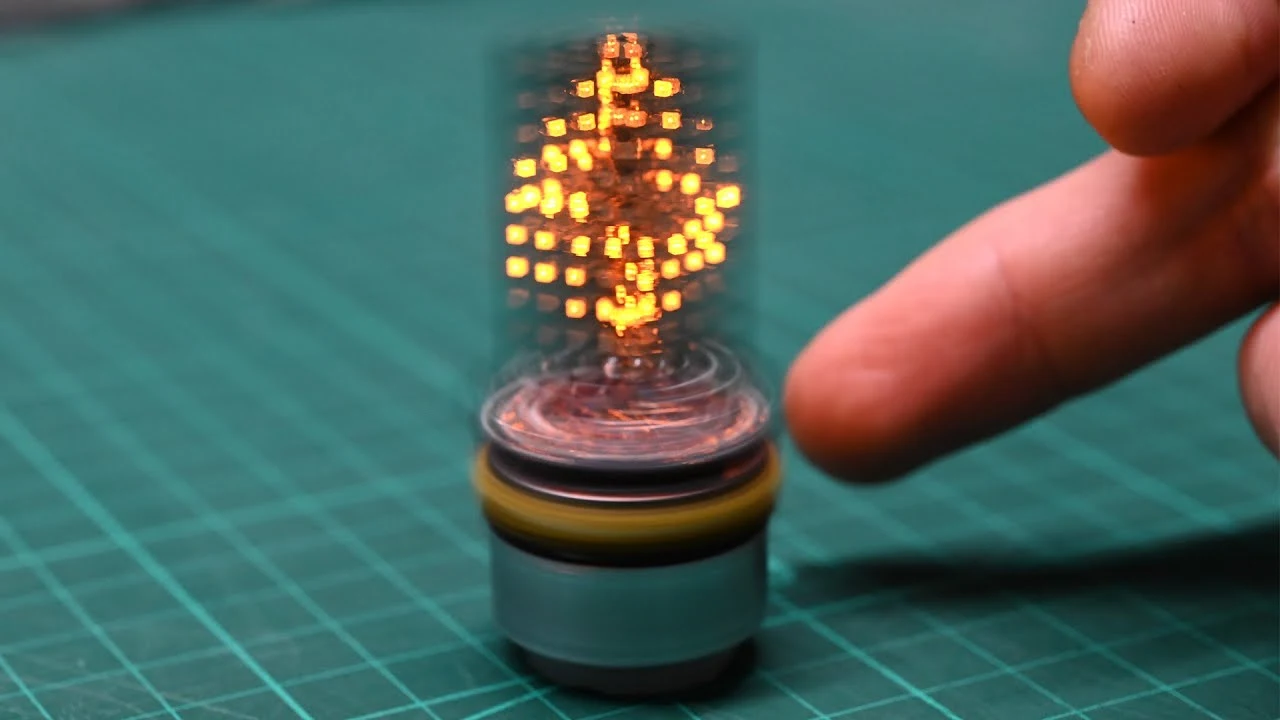
Step into a world where the boundaries of visual technology are being pushed beyond the flat screens we’re accustomed to. A new compact volumetric display prototype has been created, offering a glimpse into a future where digital images are not just seen but experienced in three dimensions. This isn’t just a concept created by mitxela; it’s a working model that brings the digital realm to life, allowing us to interact with visuals like never before. Watch the video below to learn more about the intricate workings of this tiny 3D display and the challenges that were overcome to bring it to life.
At the heart of this prototype lies an LED matrix, which acts as the canvas for the 3D images. Positioned at the top of the device, this matrix is the starting point for creating the illusion of depth. Below this, a complex array of electronics serves as the control center, directing the LEDs and sensors to work together seamlessly.
Interactivity is key in modern technology, and this prototype delivers. It includes an infrared (IR) sensor that allows you to manipulate the display with simple hand movements. A small but powerful 2450 battery provides the energy needed for the device, and a motor, repurposed from a CD drive, spins the display to bring static images to life.
Spinning volumetric display
Creating such a display was not without its technical obstacles. The rotating parts, which include the motor and battery, use bushings and slip rings to maintain a steady transfer of power and data. This smart design prevents the moving parts from getting tangled up, ensuring smooth operation.
The capabilities of the prototype are showcased through various tests. A simple wireframe cube, displayed in low resolution, acts as a test subject. When the cube is set in motion, it rotates, hinting at the potential of this device. Using Mantaflow, a tool for fluid simulations, the display can even render a glowing liquid effect, pointing to exciting possibilities for volumetric visualizations.
The initial inspiration for this prototype was to create a virtual candle, with a holographic flame that could be viewed from any angle. While the first attempt at the flame simulation needs more work, it’s a sign of the innovative directions this technology could take.
Plans for improving the prototype are already underway. Mounting the electronics onto a circuit board will make the device sturdier and more reliable. A secure battery holder is essential to keep the battery in place during operation. To enhance the display’s resolution, there are plans to increase the number of LEDs and make precise adjustments to the alignment for even lighting of each voxel.
One issue that arose was the potential for instability when repositioning the LED board to the center. A counterweight might be the solution to maintain balance. Although the device is durable and can withstand drops, the LED alignment is delicate. A transparent cover could protect the components and give the display a sleek look, similar to a Nixie tube.
For those who are fascinated by this cutting-edge prototype, more information is available on the creator’s website. This compact volumetric display is more than just a step towards the future of 3D display technology; it’s a blend of the digital and physical worlds that challenges us to reimagine the possibilities of visual technology.
Filed Under: Displays News, DIY Projects
Latest timeswonderful Deals
Disclosure: Some of our articles include affiliate links. If you buy something through one of these links, timeswonderful may earn an affiliate commission. Learn about our Disclosure Policy.

